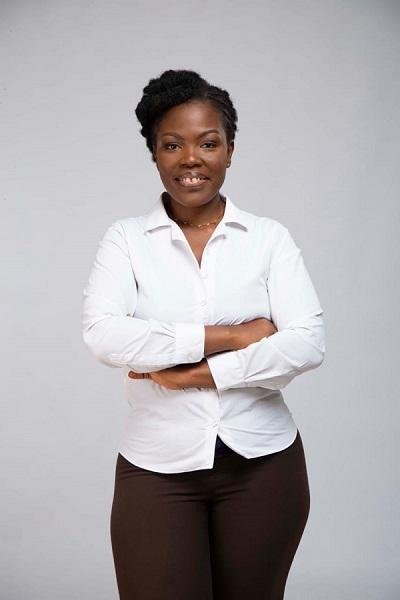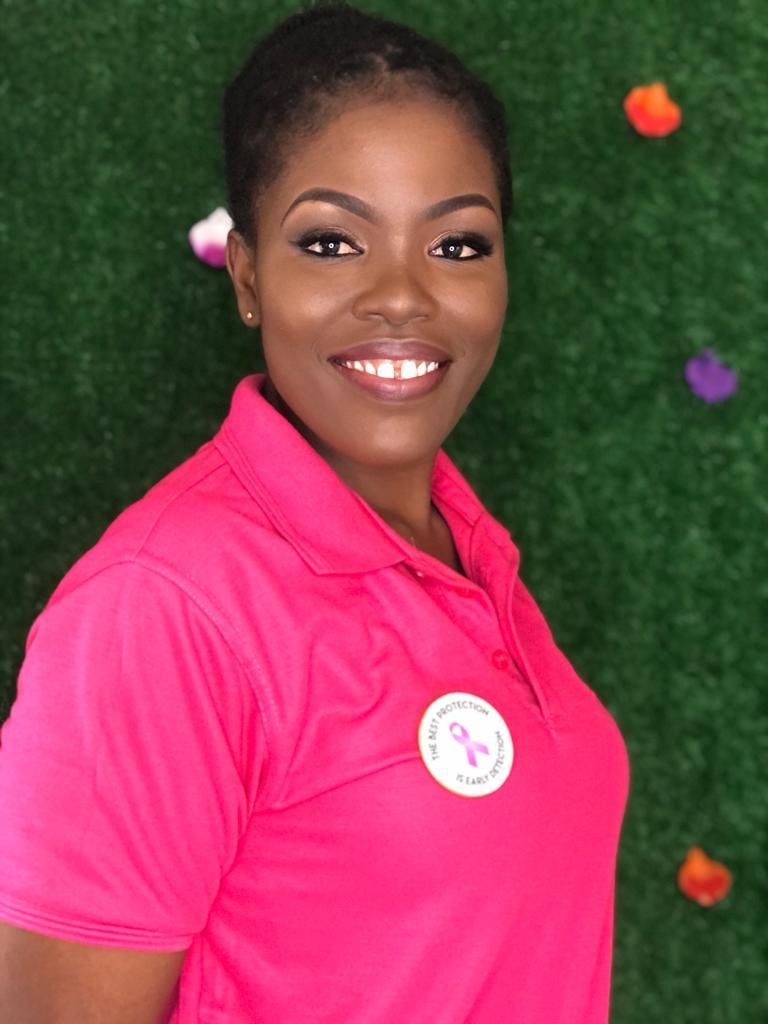Gender
Trapped in Limbo: Teenager girls caught between consent and marriage laws

A child according to Ghana’s Children’s Act, 1998, is any person below the age of 18 years and it clearly states that the best interest of the child shall be paramount in any matter concerning the child.
Again, it says the best interest of the child shall be the primary consideration by any court, person, institution or other body in any matter concerning the child.
According to Section 14 of the Act, ‘no person shall force a child to be betrothed, be a subject of a dowry transaction; or be married’.
The minimum age of marriage of whatever kind, it stated, shall be 18 years.
Ghana’s minimum age for sex
However, Ghana’s minimum age of consent to sex is ‘16’ years old. At this age, an individual is considered legally old enough to consent to participate in a sexual activity.
Ghana’s statutory rape law is therefore violated when an individual has consensual sexual contact with a person under age 16.
At the age of 16 years, most children in the part of the sub-region depend on their parents or guardians for their wellbeing-education, physiological needs (food, shelter, clothing, other basic necessities), and health needs among others.
When such a child, especially a female is legally permitted to consent to a sexual activity, it then means the child ‘should’ be able to take responsibility for whatever may be the effect of the sexual activity.
Disregard for loopholes in age consent to sex
A position paper on harmonising the age of sexual consent and the age of marriage in Ghana by the Ministry of Gender, Children and Social Protection and UNICEF Ghana, states that despite the concerns arising from the disparity in age of sexual consent and age of marriage, it is noted that there have been limited legal interventions.
So far, it said attention had been on the campaign to end child marriages and much consideration had not been given to the age of sexual consent in the country.
In Ghana, sex is not a topic that is easily discussed in the open. The socio-cultural dynamics between parents and their children make it difficult for children to discuss their sexuality freely with older members of their family.
Exacerbated by the ubiquity of social media, the result is that many young children and adolescents learn about sex from peers, internet sources and experimentation. If a child is too young to marry before the age of 18, is he/she old enough to have sex at 16 years?
In their consultations, they found out people were far more willing to accept boys’ interest in sex as natural, than teenaged girls’ interest, which was regarded as wayward, and symptomatic of some deficiency in a girl’s upbringing or in the girl herself.
Statistics
In Ghana, many adolescents aged 15 to 18, whether married or not, have had sexual intercourse, according to the United Nations Population Fund report in 2016.
Additionally, 12 per cent of girls and nine per cent of boys have had sex before the age of 15 and statistics further show that 10 per cent of teens under 15 years are having sex.
A survey conducted by the Ghana Demographic Health (GDHS) in 2008 revealed that 44 per cent of young people have sex before age 18 and most initiate it at age 15.
According to the Ghana Statistical Service, between 2008 and 2014, the percentage of men and women between the ages of 25 and 40 who reported having sexual intercourse at age 15 decreased only one point, from 12 to 11 per cent (GSS 2015).
Furthermore, it has been estimated that four in 10 Ghanaian women and two in 10 men aged 15–19 have had sex before. (Alan Guttmacher Institute, 2004).
Experiences of survivors
In an engagement with Martha Asante, a 17-year old school dropout, she said: “I got pregnant at 16 and was forced to drop out of school. If the age of consent to sex was 18, I might have avoided this situation.
Since we were taught in school you can have sex at 16, I just gave in to a man who showed interest easily.”
Another, Naa Lamiokor Tagoe, a survivor of a child marriage, says: “I was married at 17 and had to endure physical and emotional abuse. If the legal age of marriage was enforced, I might have been spared this ordeal.”
Expert’s concerns
Mr Abdulai Jaladeen, the Upper East Regional Director of the Commission on Human Rights and Administrative Justice (CHRAJ), at the celebration of the International Day of the Girl Child in Bolgatanga, appealed to the Gender Ministry to lead the crusade for a memo to be sent to Parliament for the law to be amended.
The delay in reviewing the age of consent to sex, he said, allowed culprits of child sexual abuses to go scot free. “When an adult impregnates a child at the age of 16, the law can catch up on you, but some of these people go behind to influence parents and even the victim.
And once the girl appears before a judge, and says I consented, the judge and prosecutors cannot do anything,” he noted.
Mr Jaladeen explained that if the law was changed from 16 to 18, men who fell foul to the law against girls below the age of 18 years would be punished fairly no matter the culprit’s financial and social standing.
He also called for a review of the Children’s Act to give stiffer punishment to people who give their girls out for early marriages to serve as deterrent to others, adding that the fine of GH¢500 for convicting an offender of the law was too minimal and suggested that a provision that spelt out modalities be made to compel the culprit to ensure that her education was not halted.
Dr Ndonwie Peter, National Executive Secretary of Girls Not Brides-Ghana, a network of non-governmental organisations, said the results of early sex at 16 was pregnancy, which truncated the education of girls as they were in many instances forced to cohabitate or marry those responsible for impregnating them.
He explained that the harmonisation of such laws to peg the minimum age of girls consenting to sex at 18 years, would help to control the increasing rate of early and forced marriages.
Challenges
Problems associated with child sex before marriage is intimate partner violence, sexually transmitted infections, adolescent pregnancy, early childbirth including unsafe abortions and infringements on their sexual and reproductive health and rights. The sexual relation involving a child usually occurs between her and an adult.
Therefore the older persons often take advantage of the girls and give them little or no room to negotiate for safe sex.
The WHO states that at 16 years or lower, the biological constitute of the girl might pose as a threat to childbirth and girls who engage in sexual activities are more likely to get pregnant, a condition that puts them at risk of experiencing stillbirths, miscarriages, eclampsia, puerperal endometritis, and systemic infections.
The babies might also suffer preterm birth, low birth weight due to young maternal age at birth, and severe neonatal condition. Many teenagers at age 16 engage in sexual intercourse not for procreation, but out of curiosity or for the fun of it and aside its consequences, the teenage mother may not be prepared for marriage or be legally permitted to marry.
To avoid shame, the parents of the female children may force their daughters to marry the man who impregnated them.
The situation is more common in the coastal communities and the Northern part of the country, where the pregnant girl is forced to live with the man responsible and/or his family, reports have stated.
Ghana as a country that is hungry for growth with all parties involved such as government, civil society organisation, development partners and donor agencies, parents, students, religious and traditional leaders, the media as well as legal practitioners, need to analyse carefully if an addition to the population through unwanted pregnancies by children is positive and should be encouraged.
If a child born of a child is not well taken care of due to inadequate finances, that child becomes a burden on society and the government at large. They gradually join the large population to depend on the fewer resources, and thereby harden the lives of the citizenry much more. -GNA
Gender
Awareness: First weapon against breast cancer

October is globally observed as Breast Cancer Awareness Month -a period dedicated to raising awareness, honouring millions of lives touched by the disease, and reaffirming the worldwide commitment to equitable access to care and improved survival for all.
This annual observance, marked in countries across the globe, serves as a rallying point to increase attention and support for early diagnosis, treatment, and survivorship. The 2025 theme, “Every story is unique, every journey matters,” places a spotlight on the deeply personal experiences of breast cancer survivors and patients. It underscores the diversity of their struggles while reinforcing the urgent need for compassionate, timely, and quality care regardless of geography, income, or background.
Behind every diagnosis lies not only a medical condition but also a story-one filled with courage, resilience, and hope. These stories extend beyond individuals, shaping the experiences of their families, friends, and entire communities.
Breast cancer continues to be the most diagnosed cancer among women worldwide. According to the World Health Organisation (WHO), approximately 2.3 million women were diagnosed in 2022, and about 670,000 died from the disease.
“These are not just numbers but mothers, sisters, daughters, and friends who deserve hope and dignity,” the WHO emphasises.
Survival rates, however, differ starkly across regions. While the five-year survival rate exceeds 90 per cent in high-income countries, it drops to 66 per cent in India and 40 per cent in South Africa. The reasons are clear: unequal access to early detection, timely diagnosis, and effective treatment.
If current trends remain unchecked, both incidence and mortality are projected to rise by 40 per cent by 2050. To address this, the WHO established the Global Breast Cancer Initiative in 2021, working with partners to strengthen health systems and reduce preventable deaths worldwide.
The situation in Ghana
In Ghana, breast cancer poses a particularly pressing public health concern. It is the most common cancer among women, accounting for about 15 per cent of all malignancies.
Studies reveal a troubling trend: almost 70 per cent of women are diagnosed at advanced stages, where treatment options are limited and survival rates much lower. In 2012, nearly half of Ghanaian women diagnosed with breast cancer lost their lives to the disease.
These statistics point to late presentation, cultural stigma, and limited access to screening facilities as some of the key factors fuelling high mortality.
Experts warn that unless more women come forward for early screening and timely treatment, these figures may remain stubbornly high.
Executive Secretary of the Breast Cancer Society of Ghana (BCSG), Mrs Georgina Kumah-Dzagah, said the numbers are not just statistics, they represent lived experiences. A survivor herself, she knows first-hand the difference early detection and treatment can make.
“My journey could have ended differently if I had ignored the early signs,” she reflected. “That is why the theme ‘Catch it early, treat it right, survive it’ is not just a slogan to me. It is a lifeline that can save countless women.”
Mrs Kumah-Dzagah believes awareness is the first weapon in the fight. She stresses that women must be proactive, know their bodies, and act quickly when something feels unusual.
“A lump, nipple discharge, or changes in the skin should never be ignored or treated with fear and silence,” she explained. “Hospitals and screening centres are there to help us, not to harm us. Early detection gives the best chance for a cure.”
The Executive Secretary also raised concern about the role of misinformation and reliance on untested remedies saying, too often, delays and misplaced trust in alternative cures cost lives.
“Treating it right means trusting science and trained professionals,” she stressed. “Modern treatment -whether surgery, chemotherapy, radiotherapy, or hormone therapy -may be tough, but it saves lives. I went through these treatments myself, and though the journey was not easy, I am living proof that treatment works when given at the right time.”
Her message resonates strongly in a society where cultural beliefs sometimes discourage women from seeking hospital care, and myths about breast cancer fuel stigma.
For Mrs Kumah-Dzagah, survival is not simply about conquering the disease. It is also about reclaiming life, hope, and purpose.
“Breast cancer is not a death sentence,” she affirmed. “Survivorship comes with challenges, but it also brings strength. Today, I speak not just for myself but for every woman still in the fight.”
A call for collective action
Mrs Kumah-Dzagah believes that breaking the silence and stigma around breast health is critical. She called on women, families, and communities to support open conversations and proactive health checks.
She said “let us be bold to check, quick to act, and committed to supporting each other. If we catch it early and treat it right, we will surely survive it.”
She said, BCSG continues to lead nationwide campaigns to create awareness, encourage screening, and support patients and survivors.
Through advocacy and education, the organisation, she said reminds women that vigilance, timely treatment, and community support can turn the tide against breast cancer.
By Esinam Jemima Kuatsinu
Join our WhatsApp Channel now!
https://whatsapp.com/channel/0029VbBElzjInlqHhl1aTU27
Gender
Trained but jobless …the human cost of Ghana’s skills mismatch

ALONG the busy corridors of the George Walker Bush highway, in Accra, 26-year old Nana Akua Afriyie arranges her beautiful sewn African print dresses on mannequins in front of her shop, hoping to attract buyers.
She trained in fashion design at a Technical and Vocational Education and Training (TVET) school in the Ashanti Region and graduated with high expectations. But three years on, she admits the journey has been tough.
“Everywhere I go, they tell me the same thing -they already have enough fashion designers,” Akua said with a wry smile.
“I wish I had studied something like agro-processing or Information Communication Technology (ICT), because that is where the jobs seem to be.”
Her story is not unique. Across Ghana, TVET graduates are struggling to find work, even as employers complain about difficulties in hiring people with the right skills.
This paradox lies at the heart of a new study commissioned by United Nations Children’s Fund (UNICEF) Ghana in partnership with the Government of Ghana, which has revealed deep structural gaps in the TVET system.
Oversupply and
shortages
The study, conducted across 57 pre-tertiary public and private TVET institutions, found a sharp mismatch between the skills offered in schools and the skills demanded on the labour market.
Only one out of the 57 schools offers training in agriculture which is a dominant driver of Ghana economy. This is despite employers reporting a rising need for skilled workers in agro-processing and agricultural technology.
The situation in ICT is only slightly better. Although the digital economy is growing rapidly, just four TVET institutions provide ICT-related training.
By contrast, trades like fashion design and garment-making are oversupplied. Almost every TVET institution offers them, leading to a glut of graduates competing in a saturated field.
Kwame Bediako, who runs a medium-sized agro-processing company in Ejisu, says the imbalance is hurting businesses. “We need young people who understand modern farming, post-harvest handling, and agro-processing.
But the schools are not training them. Instead, every year, we see hundreds of fashion and hairdressing graduates with no jobs waiting for them,” he told this paper.
Employment gap
Beyond the mismatch of trades, the study also uncovered a “perception gap” between employers and graduates.
Employers surveyed consistently reported that TVET graduates lacked adequate practical exposure and soft skills such as teamwork, communication, and problem-solving. Yet when students were interviewed, many expressed confidence in their preparedness for the job market.
“It’s like we are speaking two different languages,” said a construction contractor in Kumasi who took part in the survey.
“We advertise for masons or welders, and applicants come with certificates but cannot deliver basic tasks on-site. Meanwhile, they believe they are fully qualified. It is frustrating for everyone.”
This gap highlights a deeper issue: the way TVET outcomes are measured.
While many institutions prioritise exams and certification, employers value real-world performance, adaptability, and reliability – qualities directly tied to the targets of Sustainable Development Goal (SDG) eight which seeks to achieve decent work and economic growth.
Infrastructure
under strain
The introduction of free TVET education in Ghana has been hailed as a bold step to expand access and empower more young people with employable skills. But the surge in enrollment has placed immense pressure on schools.
Workshops, classrooms, and training equipment are overstretched, making it difficult for instructors to deliver effective Competency-Based Training (CBT) – a method designed to give students practical, hands-on skills.
At one TVET school visited during the study, a single welding machine was being shared by more than 30 students, drastically limiting practice time.
“We are trying, but the resources are just not enough,” admitted an instructor who asked not to be named.
Interestingly, the study noted that private TVET institutions recorded higher CBT accreditation levels than their public counterparts, but both sectors face similar challenges of inadequate infrastructure and outdated equipment – a challenge that reflects the urgency of SDG nine: Industry, Innovation, and Infrastructure.
Ghana’s demographic
dividend at risk
With a youthful population, Ghana is one of several African countries projected to benefit from a demographic dividend – the economic growth that can result when a large share of the population is of working age.
But UNICEF warns that this opportunity may slip away if young people are not adequately prepared for the job market. High unemployment, job insecurity, and limited opportunities are already major concerns.
“TVET is a powerful pathway to equip young people with relevant skills,” the report stated. “But unless curricula, training, and infrastructure are aligned with industry needs, Ghana risks losing the benefits of its demographic advantage – and missing its commitments under SDG four: Quality Education.”
Workplace experience:
A partial fix
One of the ways schools have tried to bridge the skills gap is through Workplace Experience Learning (WEL) – placing students in companies for internships or apprenticeships.
While many employers support this, some expressed concerns about the risks involved. “It is costly to supervise students who come for training, and sometimes they slow down productivity,” said an ICT firm manager in Kumasi. “But we do it because we know the system needs it.”
Recommendations
and the way forward
The study made several recommendations to address the skills mismatch. Its suggested curriculum alignment. It called on schools to update curricula to reflect the skills industries need, especially in agriculture, ICT, and construction.
Also UNICEF urged schools to inculcate soft skills in TVET training, infrastructure investment and build stronger partnerships.
UNICEF called for a collective effort involving government, private sector, development partners, and communities to ensure that TVET fulfils its role as a driver of sustainable economic growth.
For Akua, the fashion graduate, the lack of opportunities has been discouraging. Yet she remains hopeful. “If I had the chance to retrain in ICT or food processing, I would do it. I don’t want to just sit at home,” she said.
Her words echo the aspirations of thousands of Ghanaian youth – ambitious, energetic, and eager to contribute, but often trapped by systemic shortcomings in education and training.
By Esinam Jemima Kuatsinu
Join our WhatsApp Channel now!
https://whatsapp.com/channel/0029VbBElzjInlqHhl1aTU27














